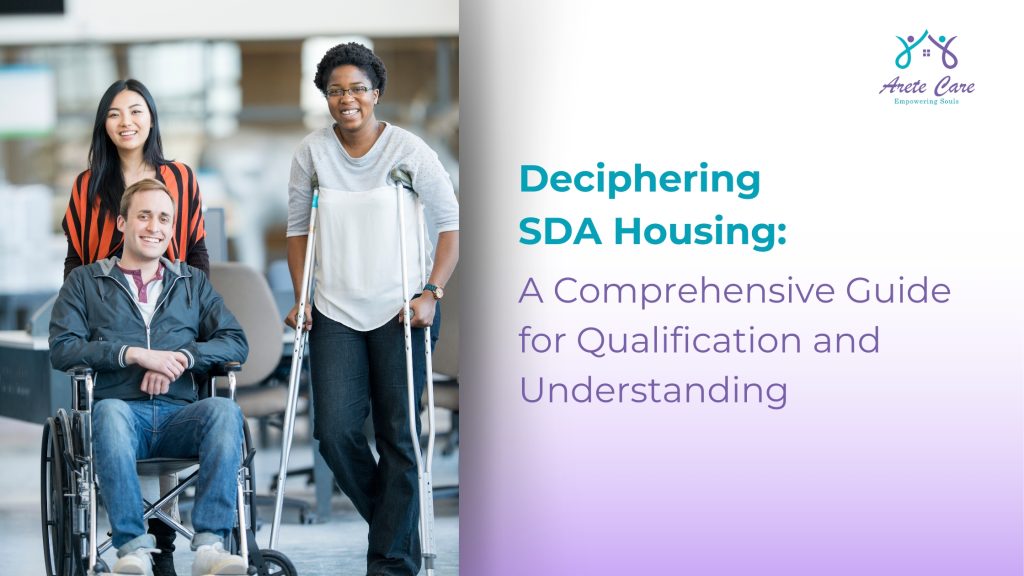Understanding the options available in finding suitable housing and the criteria for qualification can make the process smoother. We’ll explore the topic of disability housing in this guide, focusing particularly on Specialist Disability Accommodation (SDA) housing, its eligibility criteria, functioning, and financial aspects.
How do you qualify for disability housing?
Qualifying for disability housing, including SDA, involves meeting specific eligibility criteria. Firstly, individuals must be assessed as eligible for the National Disability Insurance Scheme (NDIS), which provides funding and support for individuals with disabilities. SDA is specifically designed for those with high support needs who require specialised accommodation.
To determine eligibility, the NDIS considers factors such as the individual’s functional impairment, their need for support with daily activities, and the impact of their disability on their housing requirements. It’s essential for individuals to undergo a thorough assessment to accurately gauge their eligibility for disability housing.
How does SDA housing work?
SDA housing operates differently from traditional housing options. It is purpose-built or modified to meet the specific needs of residents with disabilities, providing features such as wheelchair accessibility, specialised equipment, and support services on-site.
Individuals living in SDA housing receive support from disability service providers to assist with daily living tasks, medical needs, and community participation. The level of support varies depending on the individual’s requirements, with some residents receiving 24-hour assistance while others may need intermittent support.
Shared living arrangements are common in SDA housing, where individuals with disabilities live together and share support staff. This fosters a sense of community and provides social opportunities for residents while ensuring they receive the necessary support to live independently.
Who pays for SDA housing?
Funding for SDA housing primarily comes from the NDIS, which provides financial assistance to eligible individuals to cover the cost of accommodation and support services. Participants in the NDIS may receive funding specifically allocated for SDA based on their assessed needs and goals outlined in their support plan.
Additionally, individuals may be required to contribute to the cost of their SDA housing based on their income and assets. The NDIS takes into account a person’s capacity to contribute financially and may adjust funding accordingly.
It’s essential for individuals to understand their funding arrangements and seek assistance from support coordinators or advocacy services if needed to navigate the complexities of funding for disability housing.
Conclusion
Navigating disability housing, particularly SDA housing, requires a thorough understanding of the eligibility criteria, functioning, and funding mechanisms involved. By familiarising with the process and seeking appropriate support, individuals with disabilities can access suitable accommodation that meets their needs and enhances their quality of life.


